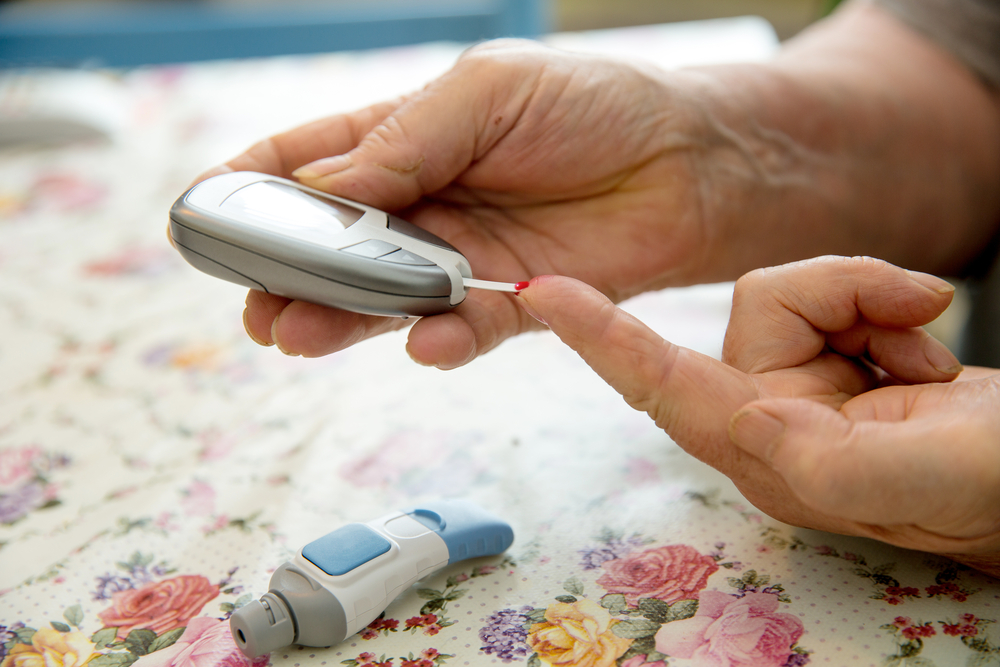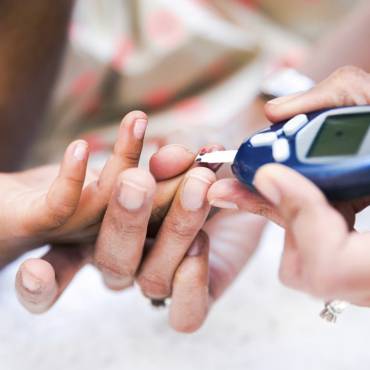A diagnosis of type 2 diabetes can be upsetting, but it is also good to know that it is manageable. By making few lifestyle changes, a positive attitude and a strong determination to give your health a priority, you can be successful in spending a happy and healthy life with diabetes.
The goal of type 2 diabetes treatment is to control blood sugar at normal levels. Maintaining blood sugar reduces the risk of complications associated with diabetes.
Type 2 diabetes is the most common health condition and affecting about 85 to 90% of people all over the world. It can develop at any age but is more to develop in overweight people who are carrying extra pounds and aged over 40 years. Some complications associated with this problem can be minimized by adopting a healthy lifestyle, but other risk factors are out of your control.

Also Read: Air Pollution Can Raise Risk of Type 2 Diabetes
A healthy diet and regular exercise are very important to manage a progressive condition like type II diabetes. However, diabetes treatment such as pills and insulin may be used to control rising blood glucose levels. Patients are advised to take diabetes medications only after consulting with your healthcare provider.
The main target of type II diabetes treatment is to control blood glucose levels in the recommended range. It is also necessary to maintain blood pressure level and cholesterol levels. There are some people who had diabetes for months or even years before they find out and then knowing that they have already developed diabetes-related complications.
Risk factors associated with type 2 diabetes
Adult people are more likely to develop Type 2 diabetes, but nowadays a large population of younger people and even children are now developing the metabolic disorder. Here are some risk factors for type 2 diabetes:
- Increasing age
- Living an inactive lifestyle
- Having pre-diabetes
- Being overweight or obese
- Have a family background in type 2 diabetes
- Using certain types steroid medications of antipsychotic drugs
- Having polycystic ovary syndrome (a women disorder)
- Having gastrointestinal pregnancy during pregnancy
Type 2 Diabetes symptoms
Symptoms associated with Type 2 diabetes include:
- Pain in the legs or feet
- Blurred vision
- Going to the toilet more often to pass urine
- Tingling in the legs and feet
- Itching and skin infections
- Feeling tired most of the time
- Being thirsty and drinking water more than usual
- Cuts and injuries that do not heal
In many people, symptoms of Type 2 diabetes do not appear or if it appears people don’t even notice these symptoms. In serious cases, the first sign of diabetes may be a complication such as foot ulcer, vision problem, or even a heart attack.
Managing type 2 diabetes
Diabetes can be prevented by making some changes in your lifestyle habits. People who are at a high risk of developing type 2 diabetes can prevent the disease by adopting a healthy lifestyle and add good habits to their daily routine. The healthy habits include eating healthy food, including regular exercise, or physical activity in daily routine, and maintain a healthy weight by shedding extra kilograms or gaining some pounds if underweight.
Once you have developed this metabolic disorder, it can’t be cured, but fortunately, it can be easily managed by following a healthy lifestyle. According to clinical studies, maintaining a healthy weight plays a significant role in slowing down the progression of type 2 diabetes.
Also Read: Manage type 2 diabetes with ease
Over time, according to your health condition, you may also require glucose-lowering medications for diabetes care. These type 2 diabetes medications can either be recommended to you in the form of tablets or injections. As this metabolic condition progresses or in extreme cases, some individuals will need insulin injections to control their blood sugar level in the normal range. It is necessary to look after your condition for maintaining good health as well as to prevent further diabetes-associated complications, which include kidney impairment, nerves, vision damage, and blood vessel damage.



